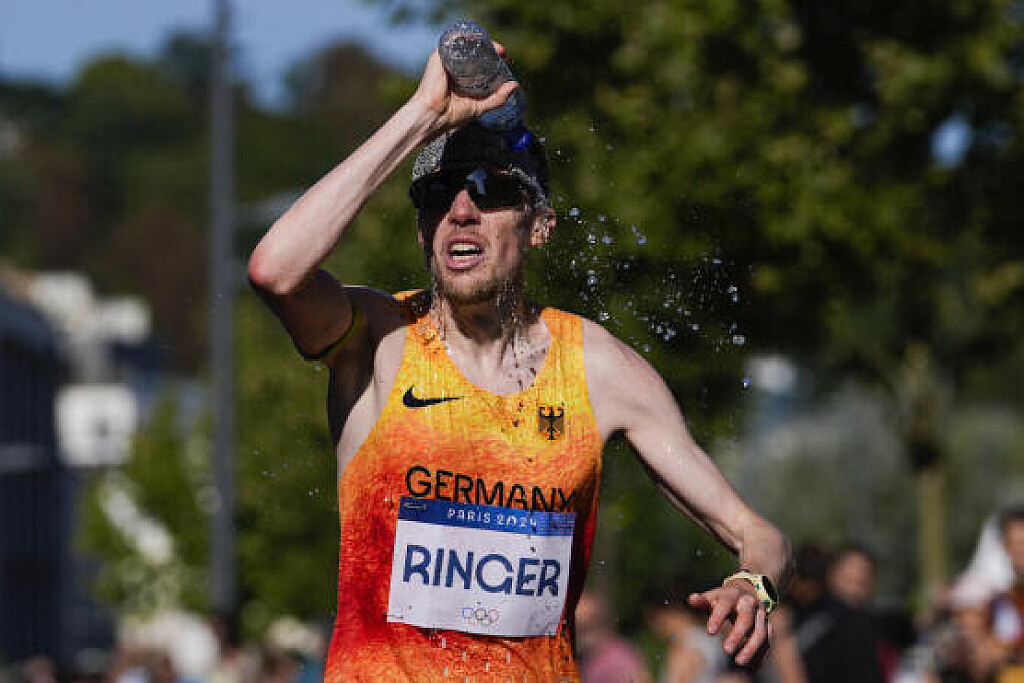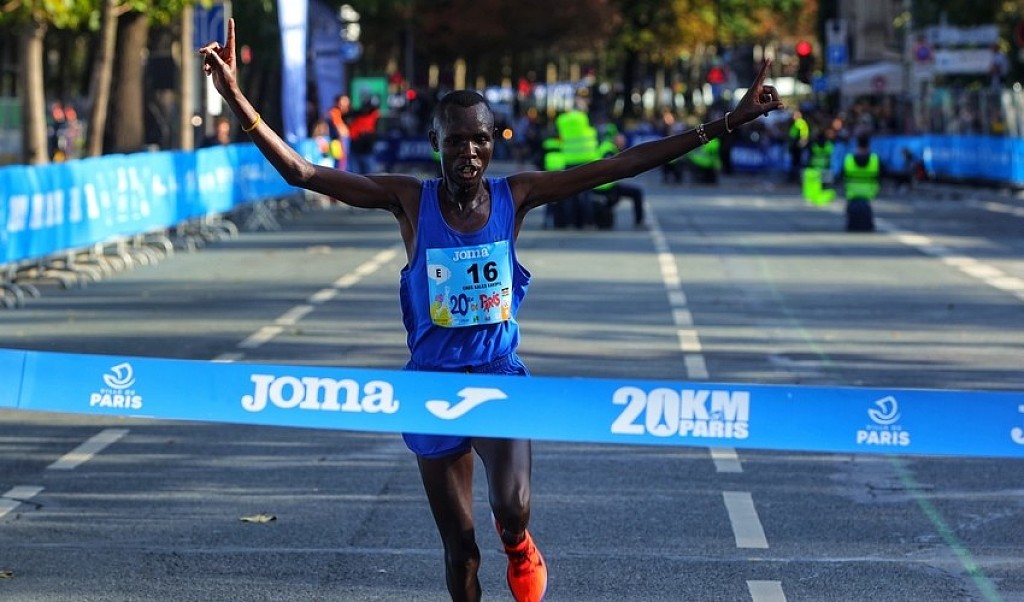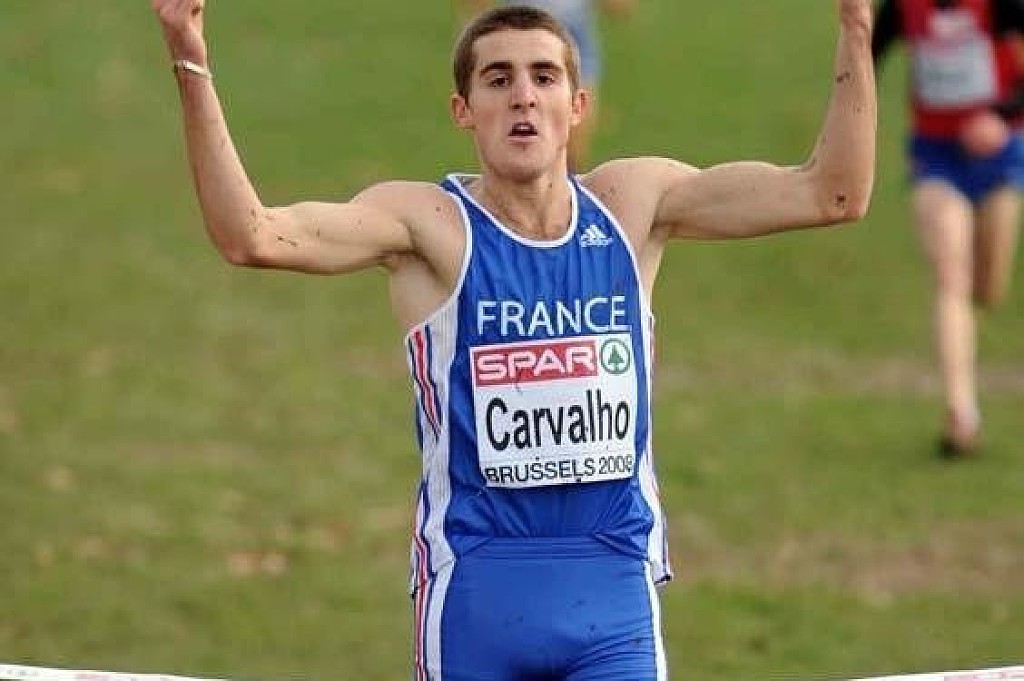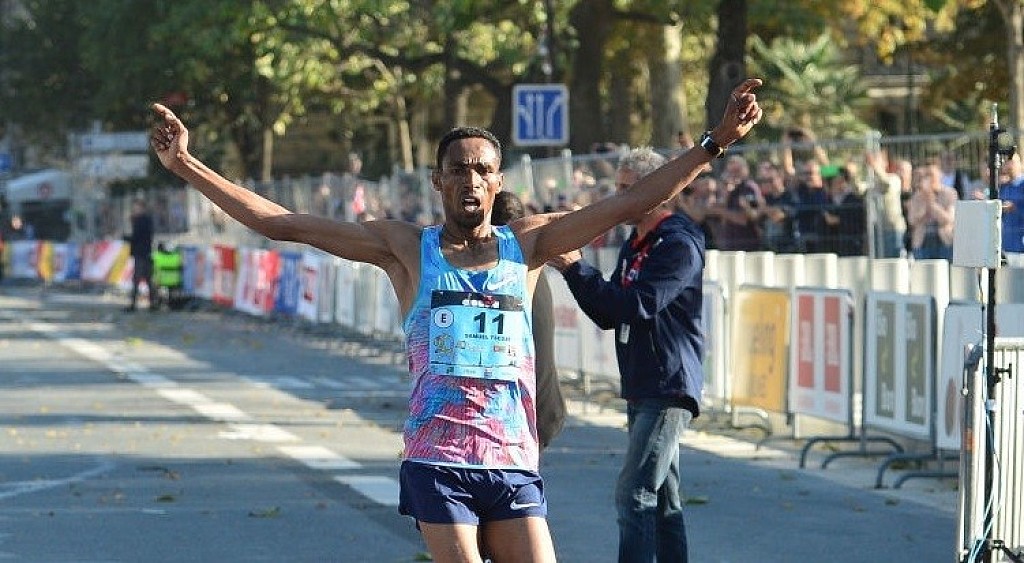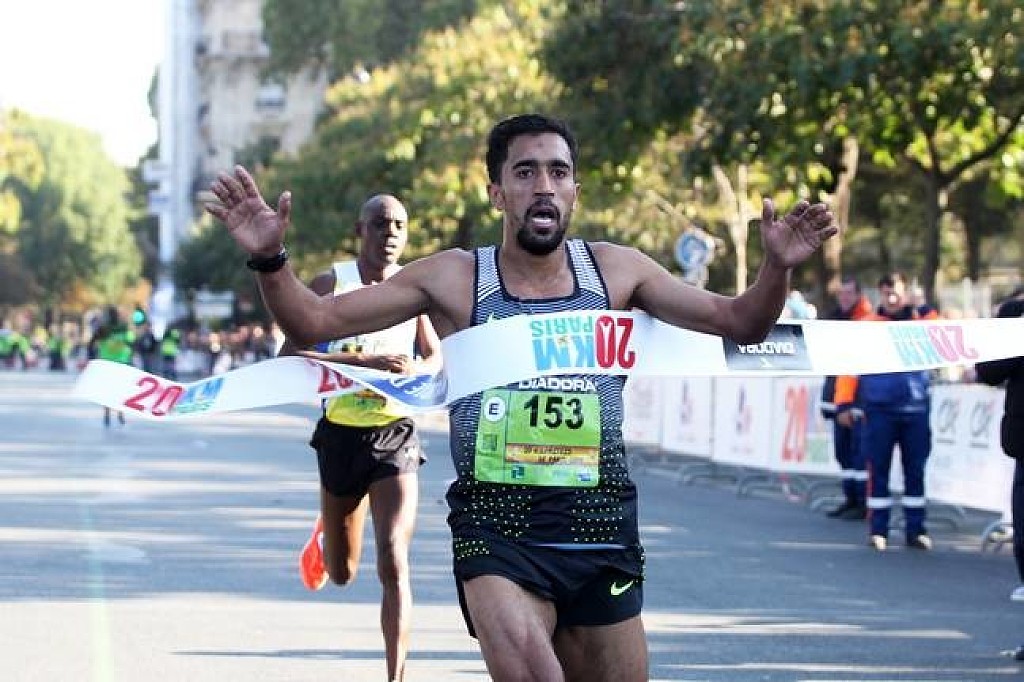Running News Daily
Running News Daily is edited by Bob Anderson. Send your news items to bob@mybestruns.com Advertising opportunities available. Train the Kenyan Way at KATA Kenya and Portugal owned and operated by Bob Anderson. Be sure to catch our movie A Long Run the movie KATA Running Camps and KATA Potato Farms - 31 now open in Kenya! https://kata.ke/
Index to Daily Posts · Sign Up For Updates · Run The World Feed
Paris bans plastic bottles from races
On Monday, Paris City Hall announced a ban on single-use plastic in all its races, including the Paris 20 km in mid-October and the Paris Marathon.
Didn't get to crisscross the Paris asphalt during the Paris 2024 Olympics' Marathon pour Tous ("Marathon for Everyone")? You'll have a chance to make up for it on October 13, with one of the many races taking place in the capital, the 46th annual Paris 20-kilometer race.
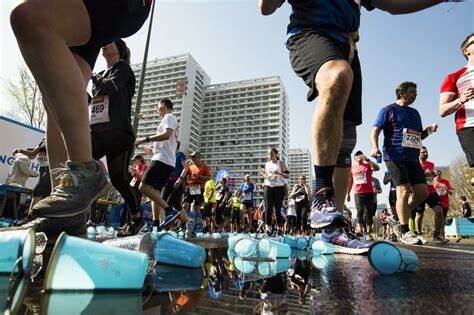
But don't forget your water bottle. At the press conference presenting the event on Monday, September 23, Pierre Rabadan, deputy mayor of Paris responsible for sports, confirmed that the ban on single-use plastic bottles would come into force.
"In Paris, you won't be able to organize a race if you use plastic bottles, it's as simple as that," assured the 44-year-old former rugby player, in remarks reported by sports paper L'Equipe. "It was one of the objectives of the Olympic legacy. We have to reduce the use of single-use plastic in our daily lives, and sport has to get on board. It's an evolution, and even a revolution for the organizers."
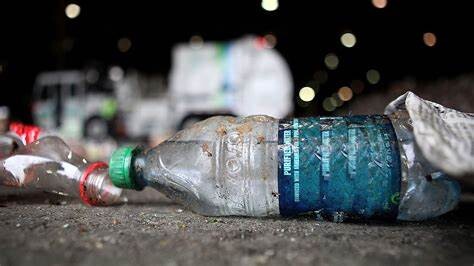
No fewer than 13 races will be held in Paris between now and December 31, for a total of some 50 events a year – including the Paris Marathon and Half Marathon, which attract around 50,000 runners. In these races, particularly the longer ones, over a million bottles are used each year to rehydrate runners – "who generally only take two or three sips before throwing it away.
I know because it's happened to me too when I used to take part in races," insisted Rabadan. So that's the end of the individual bottles cans, or cartons, which are to be replaced instead by reusable water bottles and reusable cups. The City of Paris has invested in a stock of 100,000 of these cups, which it can lend to race organizers.
Target 'zero single-use plastic' for the Olympics
During the Olympic marathon, however, competitors were granted a dispensation to continue using bottles – to avoid the risk of contamination, or even doping, according to the organizing committee – and elite athletes could continue to benefit from such policies. "It's all about the masses and all the other participants who aren't gambling their season on a race," said Paris's deputy mayor for sports.
Drawing inspiration from initiatives in Munich, Amsterdam and San Francisco, but above all from the refill London campaign (2018) across the Channel and the Brussels 20 km, the city has been working since 2019 to achieve the goal of "zero single-use plastic," for the hosting of the Olympic and Paralympic Games, which have claimed to be the greenest in history. This is a legacy that must live on.
Nevertheless, through the International Olympic Committee's (IOC) game of "world" sponsors, the American giant Coca-Cola – the world's leading "plastic polluter" according to the NGO Break Free from Plastic's 2023 ranking – was entrusted with the exclusive distribution of drinks at the 2024 Olympics. Numerous associations, including France Nature Environnement, Zero Waste France and No Plastic in My Sea, awarded the IOC partner the greenwashing medal.
The soda producer promoted its fountains, returnable cups and glass bottles. But over 40% of the total drinks distributed were poured into an eco-cup from... a plastic bottle. The kind of bottle that should no longer be seen at Parisian races.
by Sports department
Login to leave a comment
Les 20K de Paris
The 20 Kilometers de Paris (Paris 20 km) is an annual road running competition over 20 kilometers which takes place on the streets of Paris, France in October. First held in 1979, the race attracts top level international competitors and holds IAAF Bronze Label Road Race status. The competition was the idea of Michel Jazy, a French runner who was...
more...Enos Kales and Naomi Jebet from Kenya win the Paris 20km
The pace of the men’s race was aggressive from the outset. “It was really fast. I decided to let it go with some others French runners,” said Florian Carvalho afterwards. The Frenchman, third two years ago, then bridged the gap at about two kilometres into the race.
A group of 10 runners hit the 5km mark in 14:25, but the pace was irregular. Carvalho decided to take the lead after 10km, reached in 29:05, with eight other runners still in contention.
After the 15km mark, hit in 43:58, Enos Kales, who entered the race at last minute, made a big move. His compatriots Shewalem Yergalem and Joseph Mbatha as well as Ethiopia’s Getinet Mele Gedamu were able to stick to his stride as the French trio Carvalho, Michael Gras, and Nicolas Navarro struggled to sustain the pace.
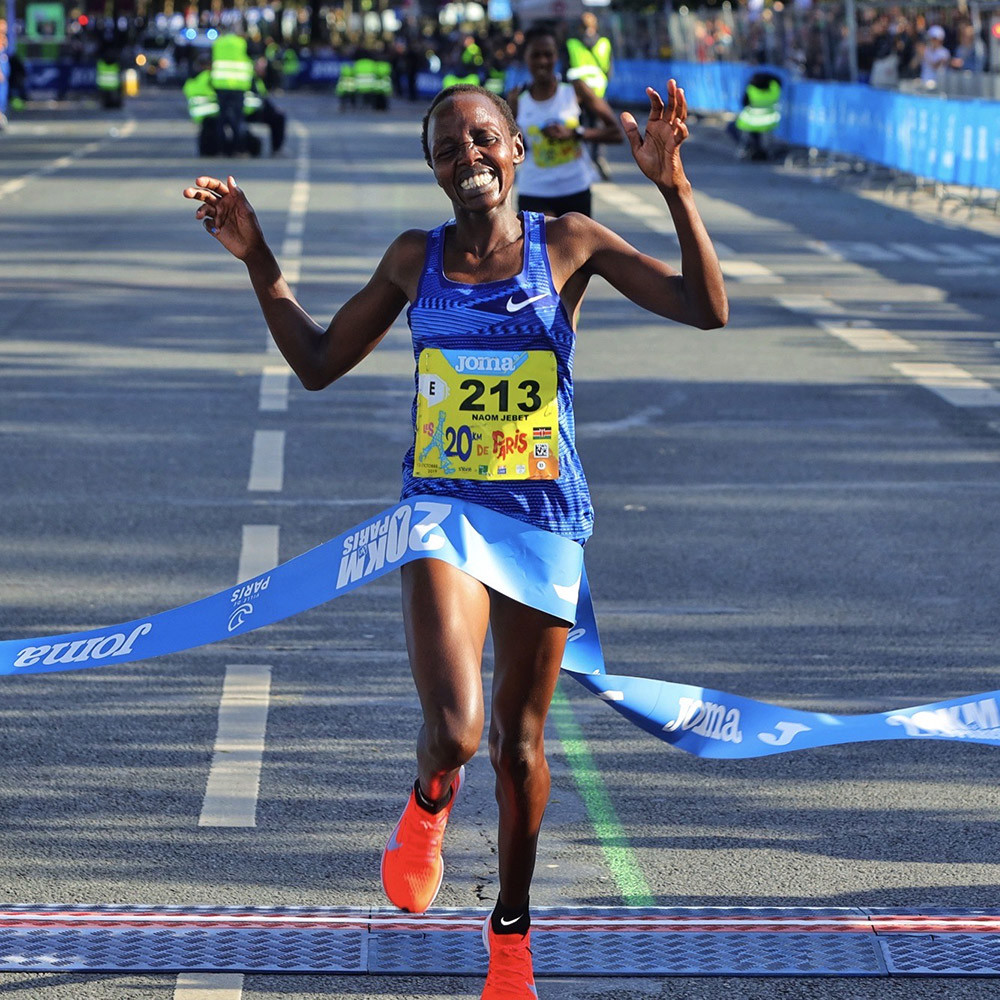
In the closing stages, Yergalem and Mbatah couldn’t handle the pace and Kales broke off. At about the same time, Carvalho and Gras drew level with the chasers.
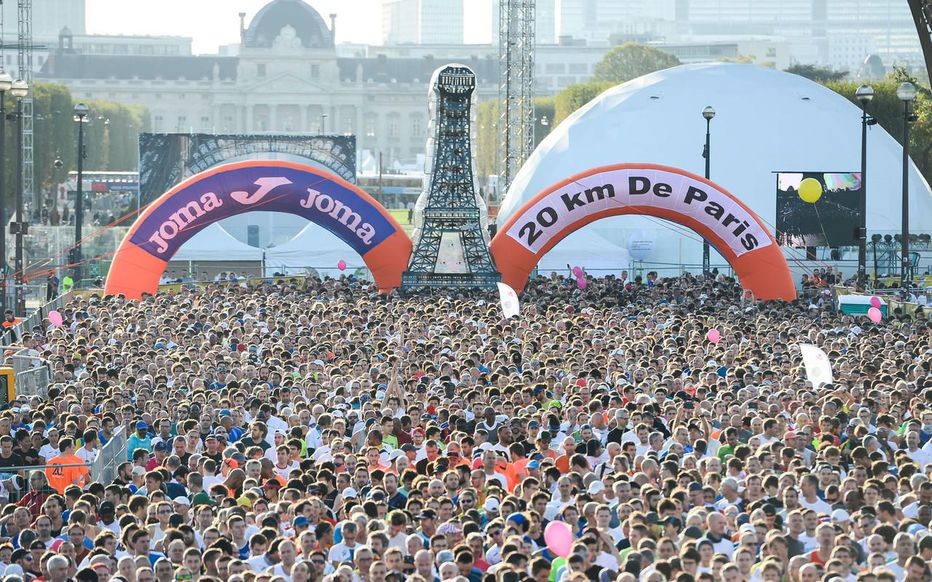
Kales held on for the win and crossed the line in 58:28, following a 14:30 last 5km section, as Carvalho finished second in 58:56, 16 seconds outside his time from 2017. “It bodes well for the Valencia Marathon, which is my main goal,” said Carvalho.
Gras managed to hold off Yergalem and Mbatha to round the podium in a personal best of 59:02.
In contrast to the men’s race, the women’s race set out at a relatively slow pace. Nine runners hit the 5km mark in 17:52, suggesting a possible finish time of 1:11:30, far from the results of past editions. The group, spearheaded by Kenya’s Naomi Jebet, ramped up the tempo during the next 5km section to reach the 10km checkpoint in 35:06.
With five kilometres to go (52:30 at 15km), there were still eight contenders for the win, including Jebet, Adawork Aberta, Chaltu Dida as well as the French pair Liv Westphal and Samira Mezeghrane.
Jebet made a big surge after 15km and only Dida and Aberta were able to follow her. Aberta then struggled to sustain the pace with two kilometres remaining, and Jebet sealed the win in 1:08:51, following a 16:21 5km section, the fastest of the race, six seconds ahead of Dida. Aberta finished third, 33 seconds adrift of the winner.
“I am very happy,” said Jebet, who clocked a half marathon PB of 1:08:08 last month. “I didn’t expect to win that race.”
by IAAF
Login to leave a comment
Les 20K de Paris
The 20 Kilometers de Paris (Paris 20 km) is an annual road running competition over 20 kilometers which takes place on the streets of Paris, France in October. First held in 1979, the race attracts top level international competitors and holds IAAF Bronze Label Road Race status. The competition was the idea of Michel Jazy, a French runner who was...
more...Frenchmen Florian Carvalho and Hassan Chahdi and Felicien Muhitira of Rwanda look to be the favorites at the Paris 20 km race
Frenchmen Florian Carvalho and Hassan Chahdi and Felicien Muhitira of Rwanda look to be the favorites at the Paris 20 km, an IAAF Silver Label road race, whose 41st edition will be held on Sunday.
With no previous winner on the start line, the 2019 edition will crown new champions in both races.
Carvalho and Chahdi, both in the build-up for their upcoming appearances at the Valencia Marathon on 1 December, should be at the front. Their goal will be to succeed Morhad Amdouni, the last French winner of the race who took the title in 2016.
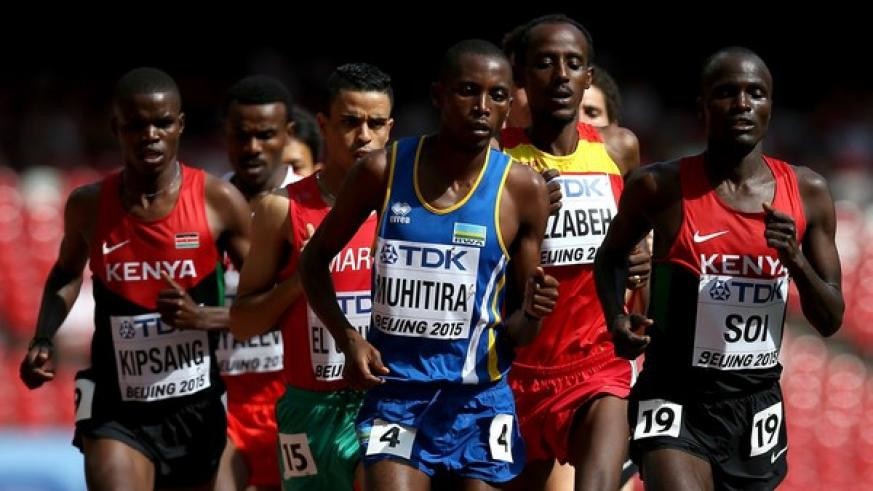
Chadhi finished third in 59:51 last year, 1:38 behind winner Samuel Tsegay of Eritrea. Chahdi’s best 2019 performance was a marathon personal best of 2:09:55 set in Seville in February.
Carvalho also set a new marathon best this year, clocking 2:12:53 in Paris. He also clocked 29:00 over 10km in June, finishing 1:42 ahead of Chadhi, who is expected to be in better shape on Sunday.
Muhitira should have a role to play. The Rwandan was runner-up at last year’s edition, finishing 12 seconds adrift of Tsegay. He should have been the favorite but he finished a distant 22nd in the marathon at the World Championships one week ago (2:16:21). The speed of his recovery will be a key factor in Sunday’s race.
Nicolas Navarro, who improved his marathon PB this year to 2:11:53 will also be in the running for the podium, as well as Haile Ibrahimov of Azerbaijan.
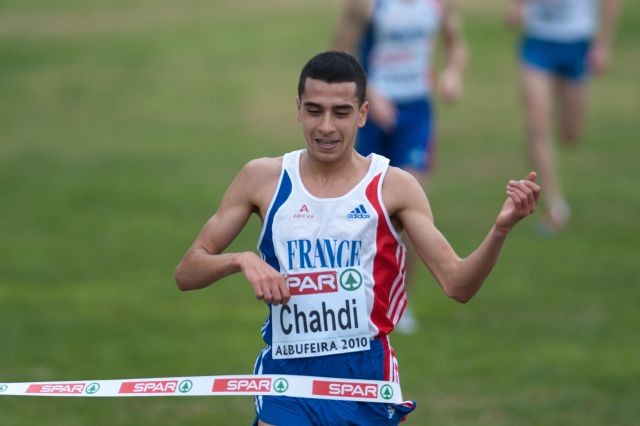
Other French runners expected to contend include marathoner Benjamin Malaty and Michael Gras. Evans Kiprop Cheruiyot set the men’s course record of 57:19 back to 2005.
On the women’s side, the defending champion Ophélie Claude-Boxberger, who competed in the 3000m steeplechase in Doha, won’t defend her title.
In her absence Susan Kipsang Jeptoo appears to be one the main favorite. She has a 32:14 10km season’s best in 2019. Liv Westphal, third last year, should be her main rival.
Chaltu Negasa, who knows the race well, Kenyan Joyline Koima as well as French runners Samira Mezeghrane Saad and Alice Finot, who finished fourth and fifth respectively, last year, should be in the running for the podium. Not to be discounted is Mekdes Woldu from Eritrea.
The women’s course record is held by Kenya’s Rose Chelimo, who ran 1:05:01 in 2014.
About 30,000 runners are expected to enter the race on Sunday.
by IAAF
Login to leave a comment
Les 20K de Paris
The 20 Kilometers de Paris (Paris 20 km) is an annual road running competition over 20 kilometers which takes place on the streets of Paris, France in October. First held in 1979, the race attracts top level international competitors and holds IAAF Bronze Label Road Race status. The competition was the idea of Michel Jazy, a French runner who was...
more...Samuel Tsegay wins the 40th annual 20km de Paris on Sunday
Login to leave a comment
France's Morhad Amdouni is going after his second title at the 40th edition of 20km de Paris
Login to leave a comment


